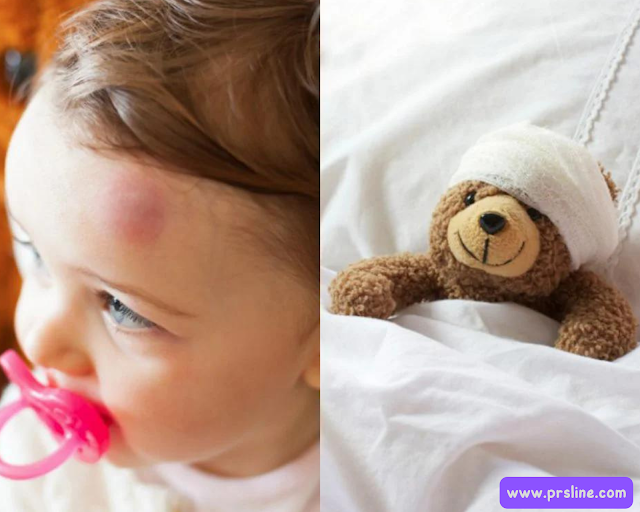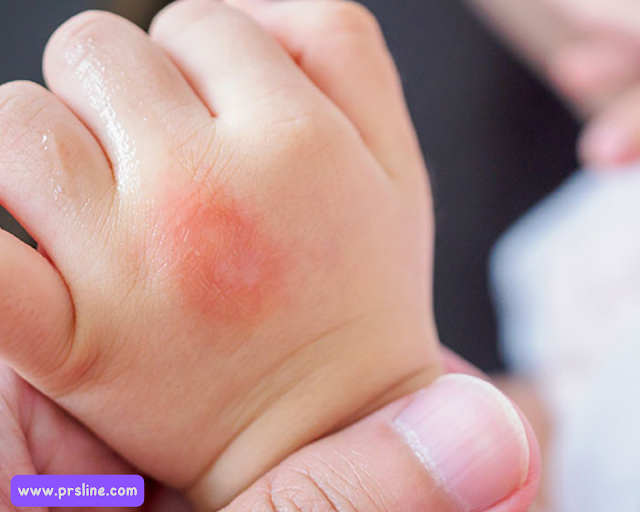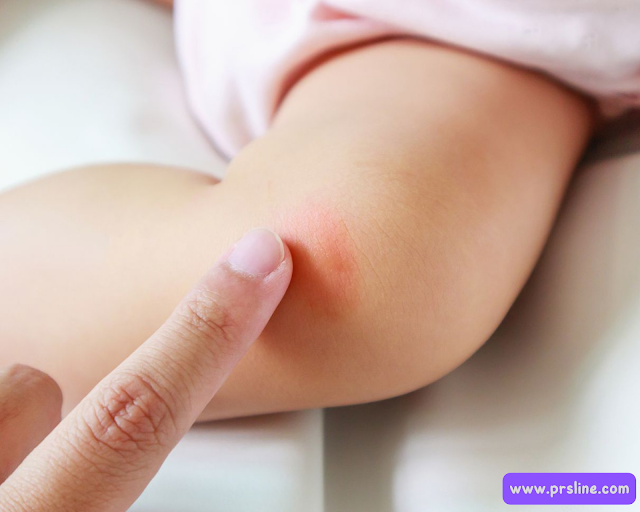Understanding Symptoms and Injuries of the Child's Skin and Effective Methods of Treatment. Learn about common symptoms and injuries of the child's skin and effective methods of treatment to alleviate discomfort and promote healing.
Understanding Symptoms and Injuries of the Child's Skin and Effective Methods of Treatment
As a parent or caregiver, it is natural to want
to protect your child from harm. However, children are prone to various skin
injuries and conditions that can cause discomfort and pain. From rashes to cuts
and bruises, these skin injuries and conditions require immediate attention to
prevent further complications. In this article, we will discuss the common
symptoms and injuries of the child's skin and effective treatment methods to
alleviate discomfort and promote healing.
Symptoms and symptoms of the child's skin:
Rashes
Causes: Allergies, irritants, viruses, and
bacterial infections
Symptoms: redness, itchiness, small bumps,
blisters, and peeling skin
Treatment: applying moisturizing creams,
avoiding irritants and allergens, using over-the-counter hydrocortisone creams,
and consulting a doctor for prescription medication.
Cuts and scrapes
Causes: falls, accidents, and rough play
Symptoms: Bleeding, pain, and swelling
Treatment: cleaning the wound with soap and
water, applying an antibiotic ointment, covering the wound with a sterile
bandage, and monitoring for signs of infection.
Burns
Causes: hot liquids, flames, and sun exposure
Symptoms: redness, blistering, pain, and
swelling
Treatment: Cooling the burn with cool water or
a cold compress, covering the burn with a sterile bandage, applying antibiotic
ointment, and seeking medical attention for severe burns.
Insect Bites and Stings
Causes: Mosquitoes, ticks, bees, and wasps
Symptoms: redness, itching, pain, and swelling
Treatment: Cleaning the bite or sting with soap
and water, applying a cold compress, using over-the-counter antihistamines or
hydrocortisone creams, and seeking medical attention for severe allergic
reactions.
Methods of treatment:
Topical Creams and Ointments
Topical creams and ointments such as
hydrocortisone creams, antibiotic ointments, and moisturizing creams can help
alleviate symptoms of skin injuries and conditions. These creams and ointments
are available over the counter or through prescription from a doctor.
Pain Relief Medication
Pain relief medication such as acetaminophen or
ibuprofen can help alleviate pain and discomfort associated with skin injuries.
Steroids
Steroids such as prednisone may be prescribed
by a doctor for severe skin conditions such as eczema or psoriasis.
Antibiotics
Antibiotics may be prescribed by a doctor to
treat bacterial infections such as impetigo or cellulitis.
FAQs:
Q: What should I do if my child has a severe
burn?
A: Seek medical attention immediately. Cover
the burn with a sterile bandage and cool it with cool water or a cold compress
until medical help arrives.
Q: Can insect bites and stings cause severe
allergic reactions?
A: Yes, some children may experience severe
allergic reactions to insect bites and stings. Seek medical attention if your
child experiences symptoms such as difficulty breathing, swelling of the face
or throat, or a rapid heartbeat.
Q: Are over-the-counter creams and ointments
effective for treating skin conditions?
A: In many cases, over-the-counter creams and
ointments can be effective for treating mild to moderate skin conditions.
However, it is important to consult a doctor before using any new medication or
treatment.
Conclusion:
It's
important for parents and caregivers to be aware of the common symptoms and
injuries that can affect a child's skin, as well as the best methods of
treatment for each condition. By taking steps to prevent injuries, such as
using sunscreen and insect repellent, childproofing the home, and teaching
children proper safety precautions, parents can reduce the risk of skin
injuries and keep their child's skin healthy.
When skin injuries do occur, prompt and
appropriate treatment is key to preventing complications and promoting healing.
This may include using topical creams and ointments, taking over-the-counter
pain relievers, or seeking medical attention for more serious injuries. By
following these guidelines, parents can help their child recover from skin
injuries quickly and effectively, and ensure that their skin stays healthy and
protected in the long term.
Remember, if you have any concerns about your
child's skin symptoms or injuries, it's always best to consult with a
healthcare professional. They can provide a proper diagnosis and recommend the
most appropriate treatment for your child's individual needs. With the right
care and attention, you can help your child stay comfortable and healthy, and
ensure that their skin stays in great condition for years to come.
Author:
The author of "panman" is a researcher on social issues, a freelance publisher in many websites and newspapers, and an expert in writing visual, audio and readable content.
In writing this article, artificial intelligence was used in terms of formatting and drafting in English in a way that makes it easier for the reader to read the article, and also to use some additional information, which should be alerted.




